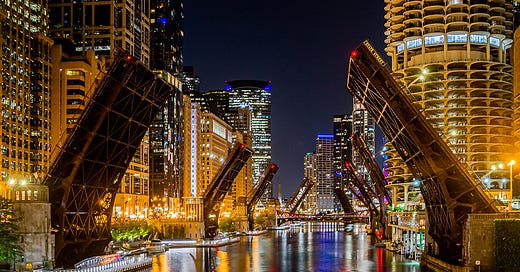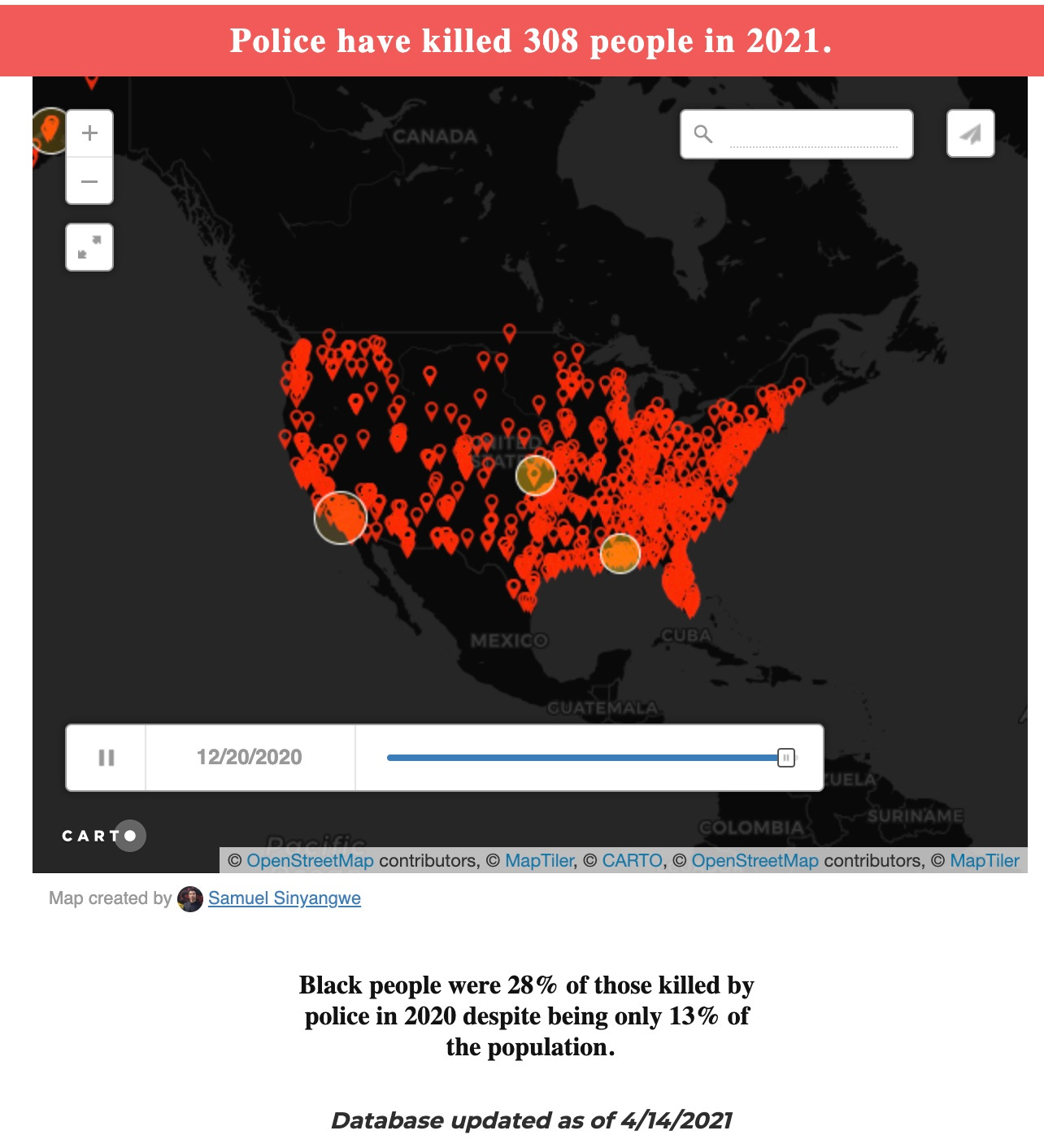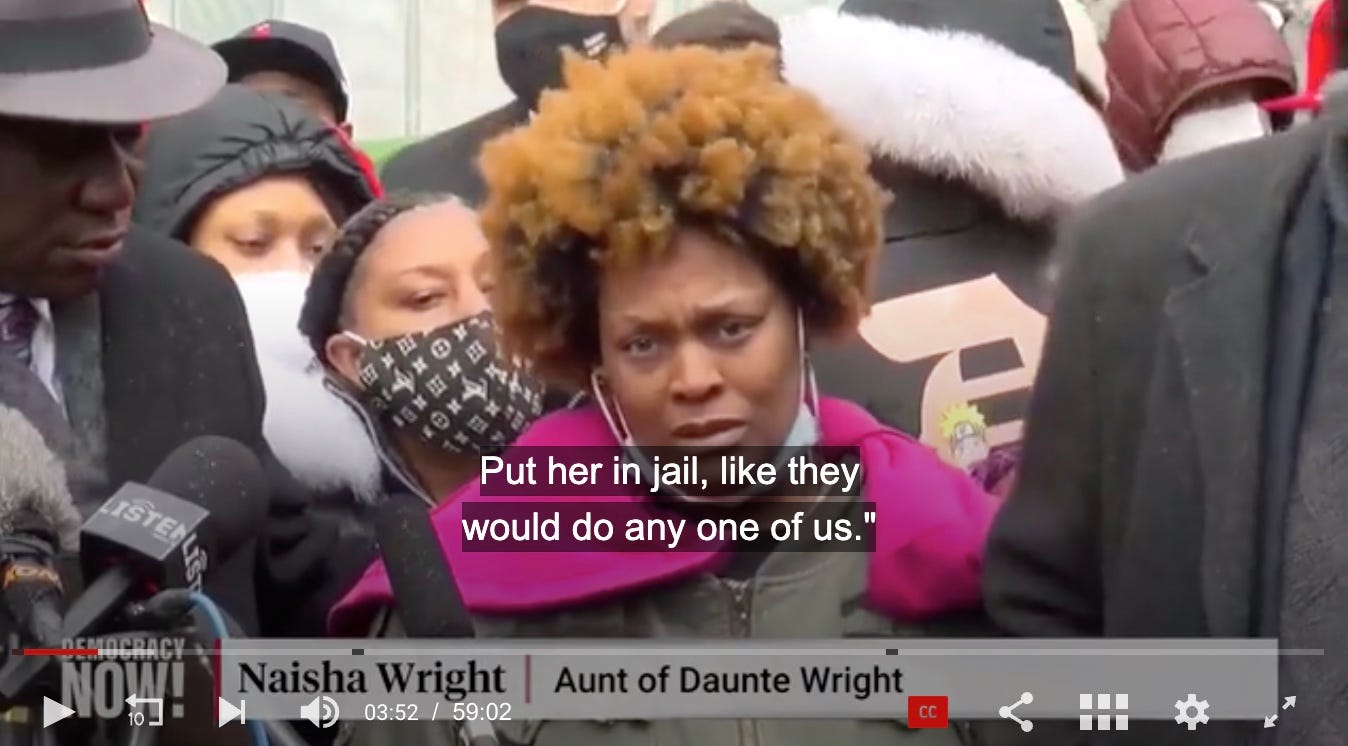Civil Unrest Is Here to Stay
Economic violence has made the USA a tinderbox. Cops keep lighting matches.
We’re a few weeks shy of a year since George Floyd’s murder and the uprisings that followed. “Everyone saw it,” said one Trump-loving relative. But does everyone remember?
There’s reason to doubt. This past week, we heard familiar calls for peace following the police killing of 20 year-old Daunte Wright. Pleas for restraint from elected officials ring hollow, however, when those officials resist fixing the underlying causes of civil unrest. Especially when they ignore protester demands and demonize them outright. These cynics put the burden of maintaining public order on rightfully outraged citizens instead of addressing the sources of their ire.
The Spark: Violent Injustice
Civil unrest is not new. It’s a chronic condition, and the US seems to be trapped in an endless cycle of it. Cops kill Black and Brown people, prompting outraged protests, which police use as an opportunity for more violence.
The Tinder: Economic Violence
Killer cops are just the spark. Income inequality and the resulting wealth gap are the tinder. These aren’t just pesky problems for economists. They create and worsen civil disorder worldwide. 250 million workers went on general strike and hunger strikes in India over the past year for economic reasons.
Author and activist Kimberly Jones laid out the causes of civil unrest on Last Week Tonight with John Oliver last year. She described labor theft under 400 years of slavery, as well as mayhem and death at Tulsa and Rosewood—literal economic violence generations after 1865.
The wealth destruction and extraction is hardly a distant memory, either. The Rand Corporation found last year that the top 10% have been extracting wealth from the bottom 90% since 1975. Fewer Americans have a material stake in the country every year. The resulting wealth gap is the stuff of revolution. Jared Ball, author of The Myth and Propaganda of Black Buying Power has quoted the very rich as saying, ”give working people some money, or they’re going to rebel.”
No Justice, No Peace.
If we keep doing the same things, we'll keep getting the same results.
As for the spark, there are some voices on the side of reforming the institution of policing. But they’re outnumbered by those invested in militarism. Moreover, the police have proved impervious to reform over time. From the institution’s founding in the slave patrols to the “warrior cop” mentality to qualified immunity, they ain’t changin’. You can pass all the laws you want. In the moment, cops do not care about the law. They care about control and compliance.
Abolitionists have been working on alternatives to our current policing system for decades. If we want to break out of this endless cycle, shouldn't we hear them out?
We can do something about the tinder, too. We could stop resisting incremental changes like minimum wage hikes, start restoring our social safety net, and give all Americans some economic skin in the game.
Regardless, let’s do something. Until we fix the problems that cause it—sparks and tinder—civil unrest is here to stay.
Edited by Dan Luft







"Political risks and violence returns to the global top 10 of the Allianz Risk Barometer for the first time since 2018, reflecting the fact that civil unrest incidents such as protests and riots now challenge terrorism as the main political risk exposure for companies."
Doris Pajon, Terrorism & Political Violence Underwriter at Allianz Global Corporate & Specialty (AGCS) Mediterranean & Africa, recently addressed the topic on Channels Television: https://www.youtube.com/watch?v=iQ6sUxgNtMo
https://www.oregonlive.com/opinion/2021/06/opinion-wheelers-call-for-civility-ignores-portlanders-tear-gas-trauma.html